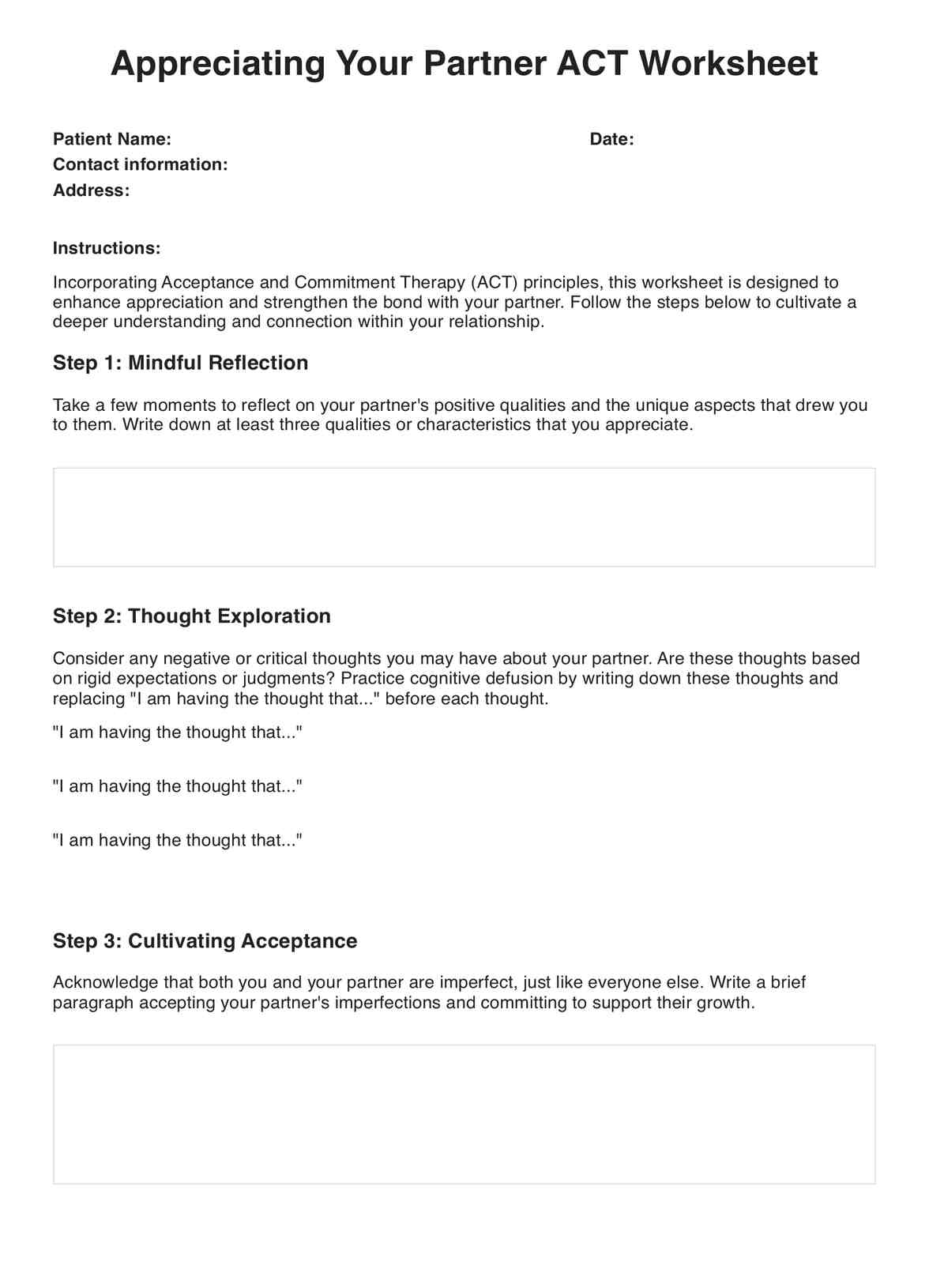This worksheet promotes mindfulness, acceptance, and values-driven actions, improving communication, deeper connection, and better conflict resolution. It provides a structured approach to fostering a healthier, more fulfilling relationship.

Appreciating Your Partner ACT Worksheet
Enhance healthcare relationships with the Appreciating Your Partner ACT Worksheet. Strengthen bonds & communication. Download now for better care.
Use Template
Appreciating Your Partner ACT Worksheet Template
Commonly asked questions
The worksheet is versatile and can be used at various relationship stages. It's beneficial for couples facing challenges, those aiming to prevent conflicts, or those seeking to reinforce their connection.
You can use the worksheet both individually and as a couple. It's designed to be adaptable, allowing you to engage in self-reflection and communicate better with your partner.
EHR and practice management software
Get started for free
*No credit card required
Free
$0/usd
Unlimited clients
Telehealth
1GB of storage
Client portal text
Automated billing and online payments











